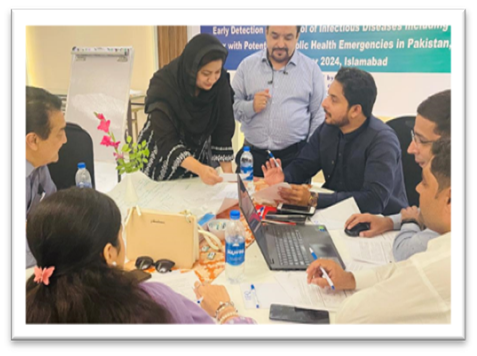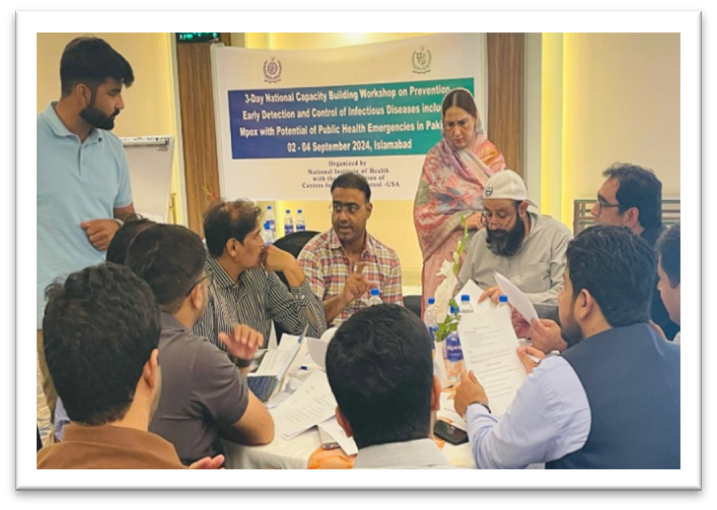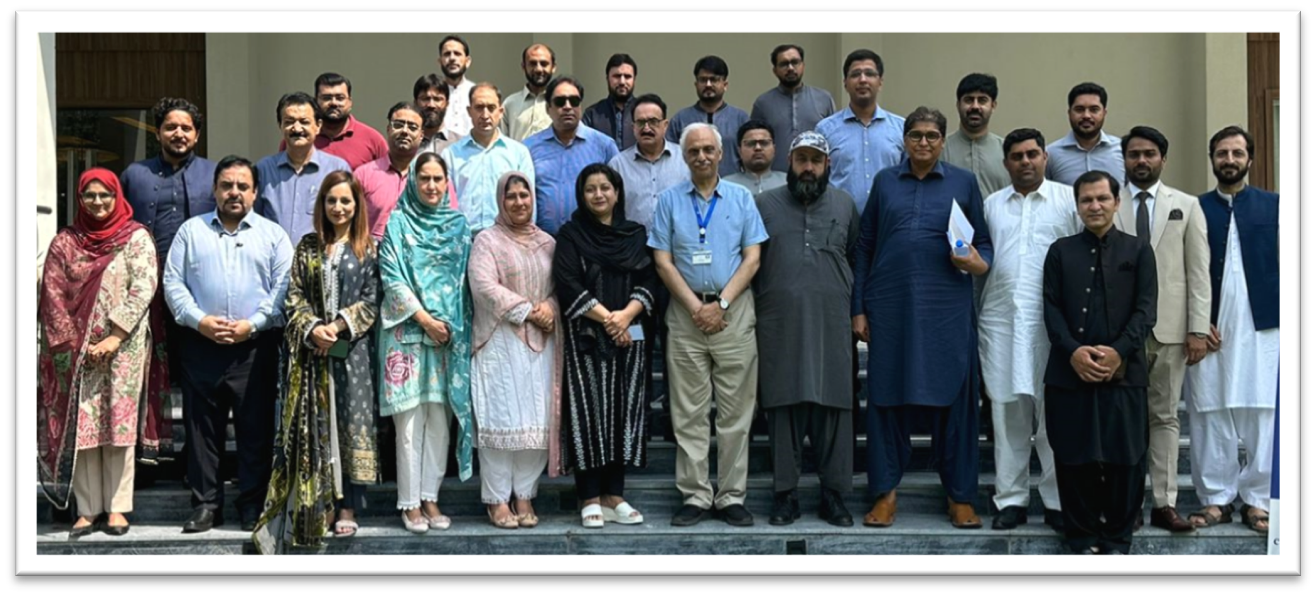
Simulation exercises for detecting, preventing and controlling infectious diseases are essential for strengthening preparedness and response to public health emergencies. The Joint External Evaluation (JEE) in 2023 also identified gaps in Pakistan’s existing surveillance and response system. Experience of COVID-19 and more recently mpox clearly highlighted the need for better preparedness and response systems.
To enhance the capacity for prevention, early detection and control of infectious diseases, UK Health Security Agency International Health Regulations Strengthening Project (UKHSA IHR-SP) team collaborated with the National Institute of Health (NIH) and US Centers for Disease Control (CDC) to organise a three-day national tabletop simulation exercise for provincial surveillance officials, district health staff, border health service staff and clinicians.
Working in partnership to develop and deliver a simulation exercise
As the lead technical agency, under the leadership of the UKHSA Country Lead, Dr Muhammad Sartaj, a technical team from the IHR-SP in-country team and NIH was formed. The team developed the methodology of workshop and realistic case scenarios for the participants. Scenarios on four common public health threats - measles, mpox, typhoid, and tuberculosis were developed.
The simulation exercise ran from 2-4 September 2024 in Islamabad, and a total of 26 participants took part. Participants were from health sector including public health professionals, clinicians, vaccinators and dengue response team members. Group exercises focused on key aspects of the management of one of the four chosen diseases, such as rapid detection, accurate diagnosis, data sharing, interagency communication and coordinated response efforts.
Facilitators and observers from the UKHSA IHR-SP and NIH monitored the exercise, noting participant responses, teamwork, adherence to protocols, and effectiveness in achieving the workshop objectives. The simulation exercise stimulated good discussion and debate on the management of these diseases.
 Lessons identified
Lessons identified
The simulation exercise highlighted gaps in communication between health agencies and local authorities, capacity for identifying alerts, response coordination, and surge preparedness. Identifying these key areas for development will allow targeted follow-up strengthening activities to take place in districts and provinces.
Participants shared their insights and reflections from the simulation exercise and appreciated UKHSA and NIH’s timely focus on mpox in Pakistan. UKHSA and NIH acknowledged the participants’ active engagement in discussions to ensure a productive outcome.
This collaboration between UKHSA, NIH and US CDC underscore the importance of global partnerships in addressing emerging health challenges and emphasises the ongoing need for capacity-building in public health. UKHSA's continued technical support in Pakistan demonstrates its commitment to building resilient health systems.
